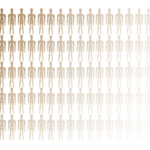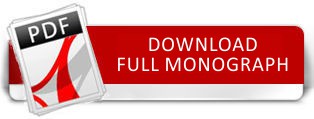EXECUTIVE SUMMARY
- This paper studies the health, physical well-being and lifestyle changes of Penangites and their management of common serious diseases and ailments, in the course of the Covid-19 pandemic.
- There have been both positive and negative changes to the health and lifestyle map of Penang, due to changing lifestyle habits stemming from the implementation of the various Movement Control Orders.
- Changes in the priority of patient care in hospitals due to the influx and surge in Covid-19 admissions have caused elective surgeries and non-emergency cases to be delayed. Patients and the general public are also reducing their visits to health facilities.
- For this study, two targeted surveys were carried out online; the first collected responses from individuals working (or used to work) in the healthcare sector in Penang during the pandemic, while the second was opened to the public. Both surveys gauge changes in public health habits and behaviours, as well as changes where lifestyle habits are concerned. Both surveys ran from May to June 2021 and gathered 31 and 81 responses respectively.
- Interviews with 7 medical doctors (1 general surgeon, 1 urologist, 1 paediatrician, 1 ophthalmologist, 1 haematologist, 1 general practitioner, 1 psychologist), 2 pharmacists, and 1 nurse from various hospitals and clinics in Penang were also conducted.
- Recommendations from the angles of telemedicine and telehealth, partnerships between public and private health sectors, equitable working policies for all healthcare workers and the dissemination of information on healthy living are suggested.
Introduction
Movement Control Orders (MCO) in Malaysia implemented since 18 March 2020 to curb the spread of the Covid-19 virus have brought about many changes to the health landscape. The delivery of public health services, as well as the general public’s perception of their health situation, and even the need to seek medical services, have all been affected. In sum, the lockdown and the pandemic have caused major disruptions to the population’s daily life and social orientation.
In order to gain some insight into these changes, Penang Institute conducted two targeted and related surveys in Penang, one designed for individuals working in the healthcare sector (doctors, nurses, pharmacists, etc.), and one designed for the general public. The demographics of the respondents for both surveys are detailed in Appendix B (health professionals) and Appendix C (general public).
Both surveys gauge changes in public health habits and behaviours, as well as changes in lifestyle habits. Both ran from June to May 2021 and gathered 31 and 81 responses respectively.
The surveys were also supplemented with semi-structured interviews with medical practitioners. This involved 7 medical doctors (1 general surgeon, 1 urologist, 1 paediatrician, 1 ophthalmologist, 1 haematologist, 1 general practitioner, 1 psychologist), 2 pharmacists, and 1 nurse from various hospitals and clinics in Penang.
Image by Emma Simpson (Unsplash)
You might also like:

Preparing for the Future of Working Life

Penang Economic Outlook 2021: Uneven Growth Expected across Sectors

The Childfree Trend: Regional Perspectives, Socioeconomic Impacts, and Policy Responses

Support for Childcare Services in Penang for Broad Socioeconomic Benefits

Elections in the Midst of Covid-19: Impact on Public Health and Democracy



